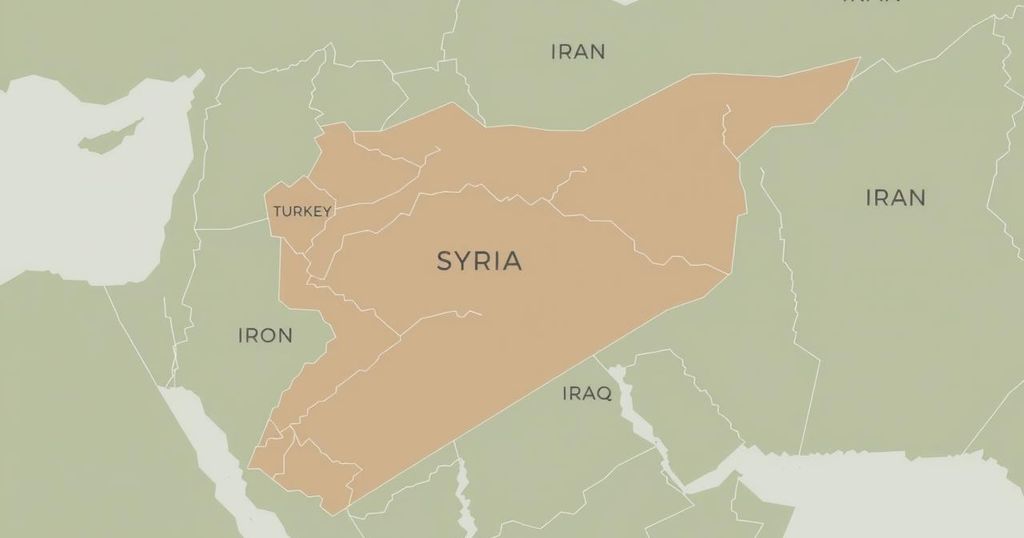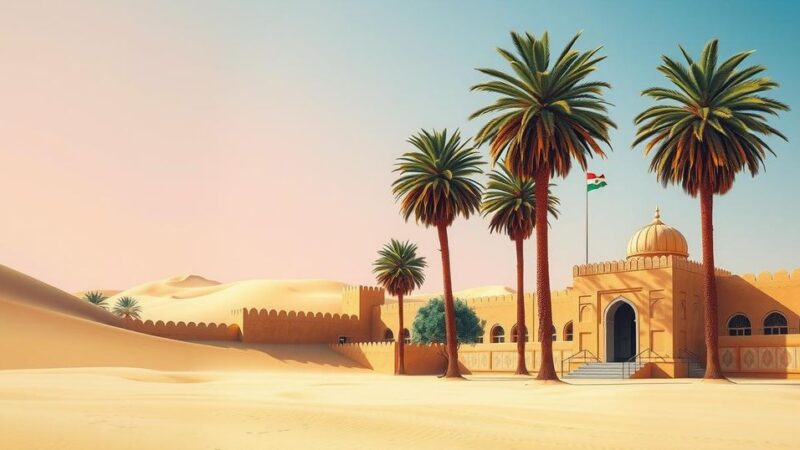Turkey and Iran are increasingly at odds following shifts in regional power dynamics. Turkey seeks to capitalize on Iran’s perceived weakening status to expand its influence in Syria and Iraq. Both nations exchange warnings and criticisms, indicating a growing rivalry that could escalate into proxy conflicts. The situation underscores a precarious balance, with potential ramifications extending beyond their borders.
Turkey and Iran are experiencing heightened tensions as they navigate shifts in regional power dynamics that have eroded their longstanding balance. Following the fall of Bashar al-Assad’s regime, Turkey seeks increased influence in Syria and Iraq, capitalizing on Iran’s perceived weakening status. Recent events, including criticism from Iran regarding Turkey’s policy and a warning from Turkish Foreign Minister Hakan Fidan against foreign interference, have intensified this rivalry.
Turkey has long perceived Iran’s regional activities as destabilizing, leading to a shared Sunni front between Turkey and Saudi Arabia, albeit one that has not yielded substantial outcomes. Energy dependence has limited Turkey’s commitment to opposing Iran, but changing circumstances, including US sanctions on Tehran and Turkey’s decreasing reliance on Iranian energy, suggest a potential shift.
In the wake of Israel’s actions against Iran, Turkey sees an opportunity to assert its influence while fostering stronger ties with Iraq. However, Iran remains resolute, with officials publicly challenging Turkey’s foreign policy and warning against intervention in Iranian minority affairs. This rhetoric serves to showcase Iran’s capability to retaliate and maintain a precarious balance of power within Turkey itself.
Despite significant losses, Iran continues to partake in regional power plays, particularly in Syria. Its influence, while diminished, allows it to support factions that could undermine Turkey’s aspirations post-Assad. Iranian leadership is cautious yet combative, reflecting a desire to reclaim its status, which poses challenges for Turkish ambitions.
The deepening rivalry between the two countries extends into Iraq, where Turkish aspirations for economic partnerships clash with Iranian political sway. As Turkey seeks to enhance infrastructure projects that would strengthen its hold on Iraq, the existing Turkish-Iranian tensions threaten to destabilize this endeavor.
Both nations maintain a potential pathway for de-escalation, with Iran needing to balance its pushback against Turkey with its overarching conflict with the US and Israel. Nevertheless, Turkey’s assertive position could lead to further confrontations should Iran continue perceived provocations. In the broader context, the evolving competition may expand beyond Syria into Central Asia, the Horn of Africa, and other regions, signaling a dangerous potential for renewed hostilities reminiscent of past conflicts in the Middle East.
The mounting tensions between Turkey and Iran represent a complex interplay of regional power dynamics that could lead to escalated confrontations. With Turkey aiming to consolidate its influence in Syria and Iraq amid a perceived weakening of Iran, both nations must navigate their relationship cautiously. While direct conflict seems unlikely, significant competition and proxy rivalries are set to intensify, emphasizing the importance of diplomatic engagement to avert larger conflicts. The global landscape remains susceptible to the implications of these tensions as both nations assert their regional ambitions.
Original Source: www.mei.edu






